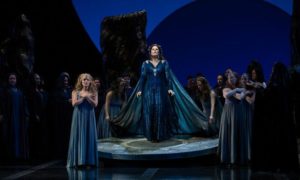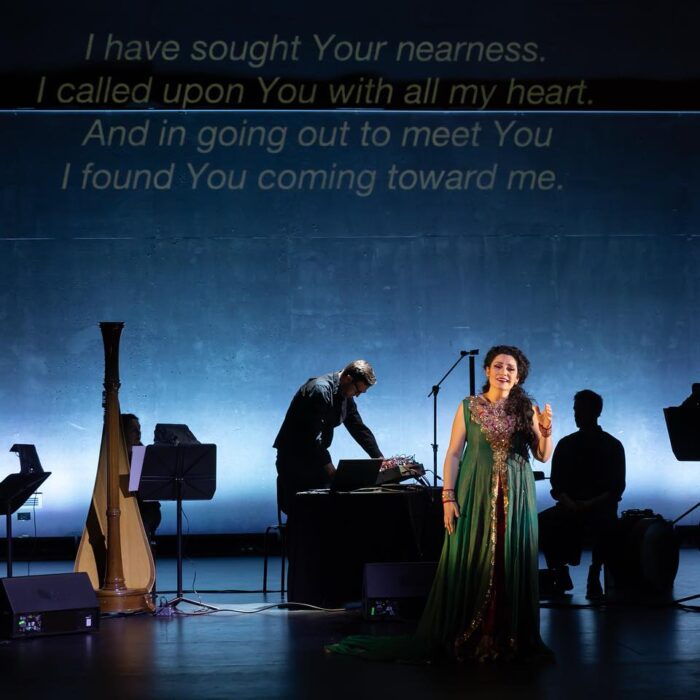
6 Iconic Singers Who Championed Donizetti’s ‘Anna Bolena,”Lucrezia Borgia’ & ‘Norma’
By Francisco SalazarDecember 26 marks the premiere of three major operas of the Bel canto repertoire. Donizetti’s “Anna Bolena” premiered the day after Christmas in 1830 while his “Lucrezia Borgia” premiered in 1833 of that same date. Meanwhile, Bellini’s “Norma” premiered on the 26th of December in 1831. All three works share similarities in that they are some of the most difficult works for sopranos in all of opera. Given these challenges, it is rare to see any singer do more than one, much less all three. However, there are some major singers who have championed all three operas to much acclaim. Here is a look at those stars that managed the feat.
Leyla Gencer
Bel canto will always be associated with Gencer because it was her efforts that re-established many of these works into the repertoire. While Maria Callas should be credited for “Anna Bolena” and “Norma,” Callas never sang “Lucrezia Borgia.” Gencer however sang all three roles in addition to Donzietti’s other two Queens and other more rare works such as “Belisario” and “Caterina Cornaro.” Gencer unfortunately never made many studio recordings but thanks to many broadcasts and live performances her voice will always live on. Her dramatic approach to these works will never be matched and her commitment to the text is unsurpassed. Additionally, her coloratura is some of the most admirable for a singer of her time.
Monserrat Caballe
The Spanish soprano was a great champion of Bel canto throughout her career. Although she did not have the E Flats that most singers are required to pull off, Caballe made sure to legitimize the works as serious pieces, not just as showstoppers. Caballe was credited for eliminating the famous “Era Desso” from “Lucrezia Borgia’s” finale and reinserted the original finale that Donizetti wrote. Her “Anna Bolena” is mostly remembered for being booed at La Scala but her commitment to the music is heard in her phrasing and her emotional power that was always present in her music-making. And there will always be her “Norma,” which is considered one of the greatest interpretations of the role. Her recording with Placido Domingo and Fiorenza Cossotto is a touchstone in the repertoire and her video recording with Jon Vickers shows her at her peak holding out those notes in single breathes like only she could.
Edita Gruberova
Gruberova never stepped outside her boundaries and always maintained an expertise in the Bel canto repertoire. For years she was the leading “Anna Bolena.” When the opera disappeared from the repertoire, she made sure to maintain it and continued to perform it regularly. Gruberova added the other two operas late in her career, but she did them in a calculated way as both “Lucrezia Borgia” and “Norma” require lower notes and are much more dramatic. She waited until 2006 to sing her first staged “Norma” and received rave reviews. It was a historic night in opera and also showcased a new way to portray the character. The diva then performed her first “Lucrezia Borgia” in 2009 to even more acclaim. Even though most will look at her final E Flat in “Era Desso” on the recorded DVD as a complete flop, the full performance should be looked as a triumph in vocal acting and a singer who surpassed most expectations.
Joan Sutherland
Undoubtedly the queen of coloratura, Sutherland is one of the most famous “Norma” interpreters in the history of opera. Sutherland not only had perfect coloratura and incredible high notes, but she had the weight for this challenging Bellini role. She gave “Norma” a virtuosity that sometimes could be missed in favor of more drama. Her “Lucrezia Borgia” is also quite famous, particularly her landmark recording with Alfredo Kraus from the Royal Opera House. At her prime Sutherland would electrify audiences with her E Flats and her virtuosic coloratura. In this performance the soprano did just that and together with Kraus, this production became legendary. Sutherland was an artist who always took risks and “Anna Bolena” became one of the her final roles. For many “Anna Bolena” is the most difficult in the repertoire and that is why Sutherland took it on at such a late age. However, Sutherland still triumphed in the role. While she transposed the final “Copia Iniqua” down, she still managed to pull off a show stopping D that had audiences cheering.
Beverly Sills
The American soprano was never considered the ideal voice type for these three roles. However, Sills always liked a challenge and she was always admired for transcending the lightness of her voice with dramatic interpretations. Sills was an actress and a singer who paid attention to the text and whose rhythmic perfection is unmatched. While she did not take on “Lucrezia Borgia” for many years, her legendary performance from the New York City Opera showcases that powerful voice that could easily cut through a huge orchestra. As “Norma,” Sills famously noted that the role was really not that hard. She stated that the role should be sung with lightness and stamina. Of the three opera “Anna Bolena” is her most famous interpretation. Sills became the first soprano in New York to perform Bolena as part of Donizetti’s Trilogy in one season. She later recorded the three queens and the recordings are considered legendary.
Sondra Radvanovsky
The American soprano may not be the first singer that jump into most people’s minds when Bel canto is mentioned. However, the soprano has been a champion of the Bel canto music and she has made sure the works continue in the repertoire. Her first foray into Bel Canto was “Lucrezia Borgia” in 2007 before making her role debut as “Norma” and later singing “Anna Bolena.” Radvanovsky became the first soprano at the Metropolitan Opera to sing “Anna Bolena” as part of Donizetti’s Tudor Queen trilogy, which also includes “Maria Stuarda” and “Roberto Devereux,” in one season. Today Radvanovsky’s “Norma” is one of the most in demand as she has performed the iconic role to great acclaim. It is her striking power in the voice that allows the music to radiate and while it may not be to the liking of most purists, Radvanovsky knows how to make this music come alive in arresting drama.
Other notable singers who have also championed all three roles include Mariella Devia, Katia Ricciarelli, Angela Meade, Elena Mosuc and June Anderson.


